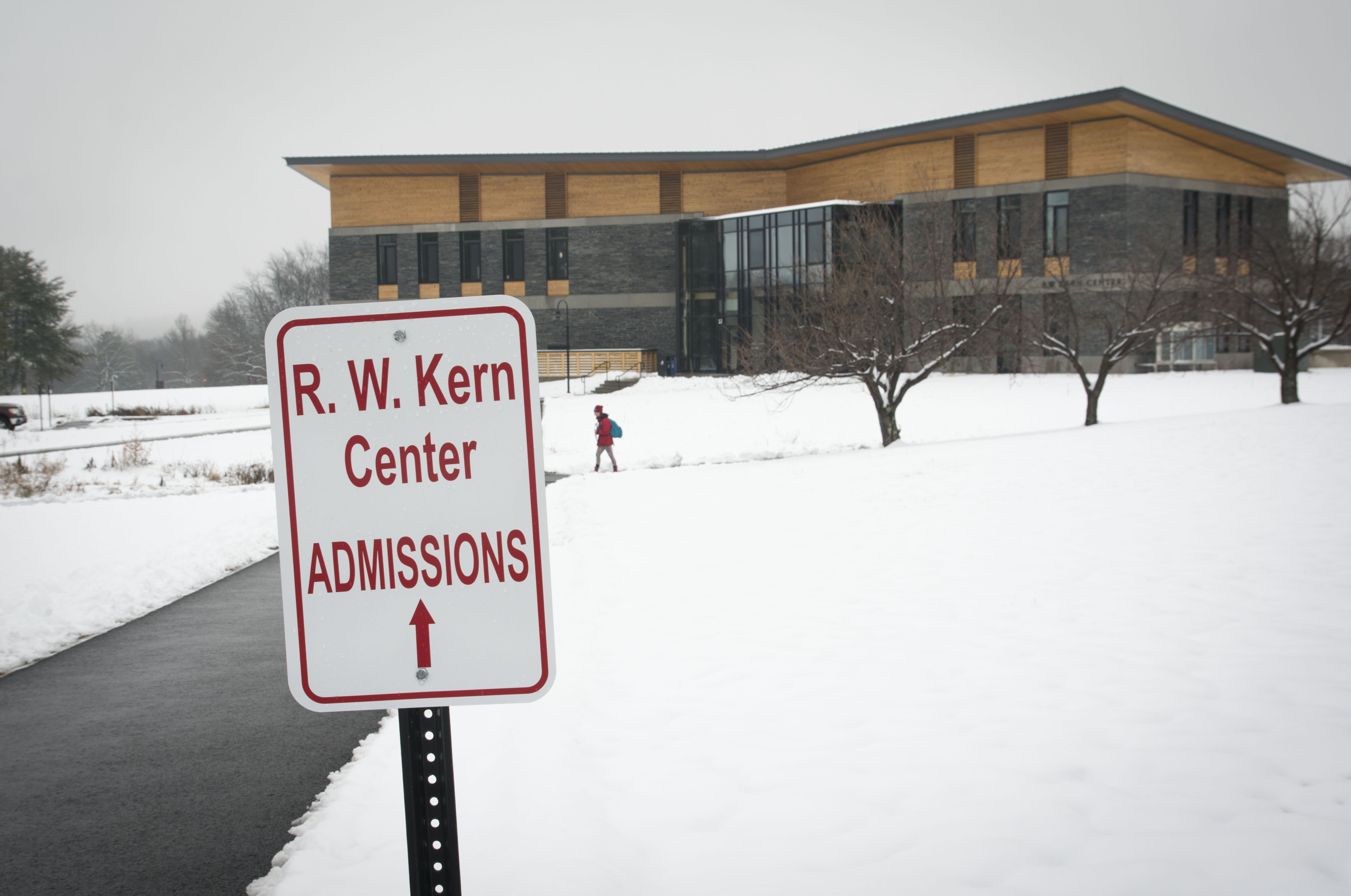Enrollment matters a lot for a school like Hampshire College, with just about 1400 students and a relatively small endowment. So Hampshire had some budget problems this year, when the student body came up about 60 students short.
“We under-enrolled,” said Meredith Twombly, dean of enrollment and retention at Hampshire. “We missed when we guessed what our yield was going to be.”
Twombly said the 51-year-old college changed its admissions process over the last few years, trying to become more selective.
“These are just things that happen when you make a dramatic shift in your strategy,” she said. “It takes a while for things to get predictable.”.
At the time, the school also cited campus protests over racism as a potential factor in the decline. Fewer applicants chose to attend, and more students than expected decided not to return.
This year, Twombly and her team changed their strategy again. They made more conservative estimates and hoped to see enrollment pick back up next fall.
But right as application season kicked off, Hampshire College was all over cable news.
A few days after the election, the American flag at the center of campus was burned. The school president later had the flag taken down, saying it was distracting from a larger conversation about the school’s values.
Veterans protested, politicians complained, the flag went back up and the situation drew a lot of attention to the small college.
Discussing the situation on Fox News, Bill O’Reilly made this prediction:
“Well, they’re done. The college is done,” O’Reilly said. “It’s a laughing stock.”
But could a controversy like this actually have an impact on Hampshire’s enrollment?
Jonathan Smith is an assistant professor of economics at Georgia State University. He’s the co-author of a new research paper that measures how a scandal on a college campus can impact applications to the school.
“Students certainly do respond to scandals negatively,” Smith said.
Smith’s research shows that just one negative mention of a college in the New York Times can reduce applications 5 percent. A long-form article can cause a decline of 10 percent.
“So there’s sort of this increasing relationship where you see the more media attention there was around a particular scandal, the fewer applications the school would get the following year,” he said.
But they key word in Smith’s research is “scandal.” He’s focused on serious crimes like sexual assault or violent hazing. The situation at Hampshire, though controversial, doesn’t quite fit the bill.
“I think what happened at Hampshire College has the potential to attract some applicants, but also deter some applicants, so it’s not exactly obvious what’s going to happen on net,” Smith said.
It’s an out-of-the-ordinary situation and Hampshire is an out-of-the-ordinary college. The school has no majors, no letter grades and it was founded on a philosophy of alternative education.
Adam Metsch is president of a private college advising company called College Advisor of New England. He’s helped students and families through the process of picking colleges for more than 20 years. Metsch said a school’s atmosphere is one of the most important things for applicants to consider.
“It’s not about elite kids getting into elite schools; it’s about understanding what the dominant culture of a school is,” he said. “Not just size, location, major, but political climate, for example.”
Metsch said Hampshire College is not the kind of school just any student would want to apply to, and those who do apply are probably expecting something a little different.
Dana Maple Feeney is a third-year at Hampshire and the unique atmosphere is exactly why she decided to enroll.
“I showed up and I just felt so much different than I felt anywhere else — just hearing people talk about what they were studying,” Feeney said. “And I don’t think anything really would have changed that feeling.”
Feeney said her younger brother is looking at colleges right now and she’s encouraging him to consider Hampshire.
Meanwhile, Twombly hopes that — for new applicants — Hampshire’s distinctive campus culture will outweigh recent criticisms of the school.
Hampshire’s first two admissions deadlines, for early decision and early action candidates, have already passed. Twombly said so far, those show about a 5 percent increase in applications over last year.
“That was my first indicator that, you know, this might not have a big impact,” she said.
The protests at Hampshire have dispersed. The news trucks have left. Pundits have moved onto the next subject.
And, Twombly said she feels optimistic looking ahead to the college’s biggest application deadline in mid-January.
Listen to this story on New England Public Radio
